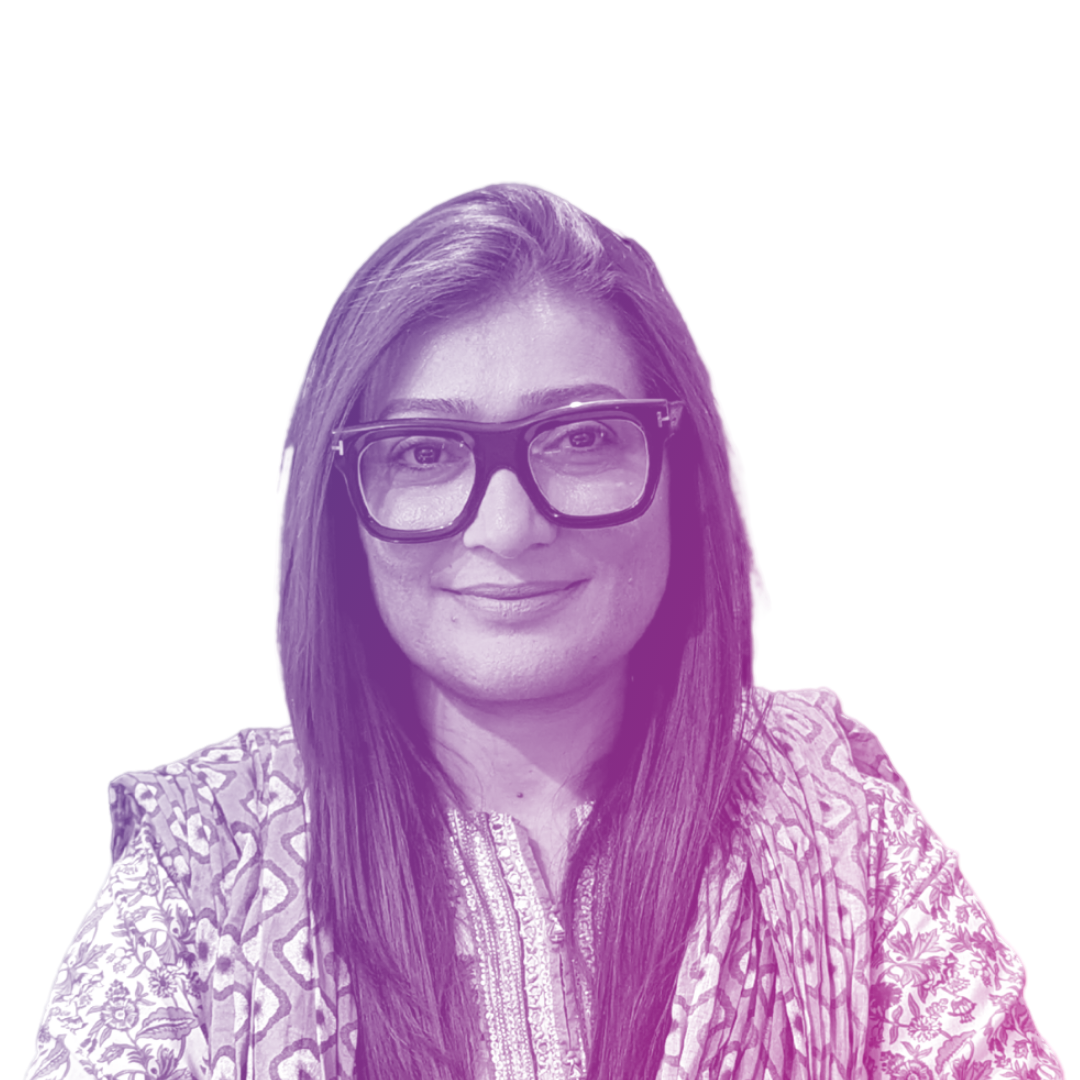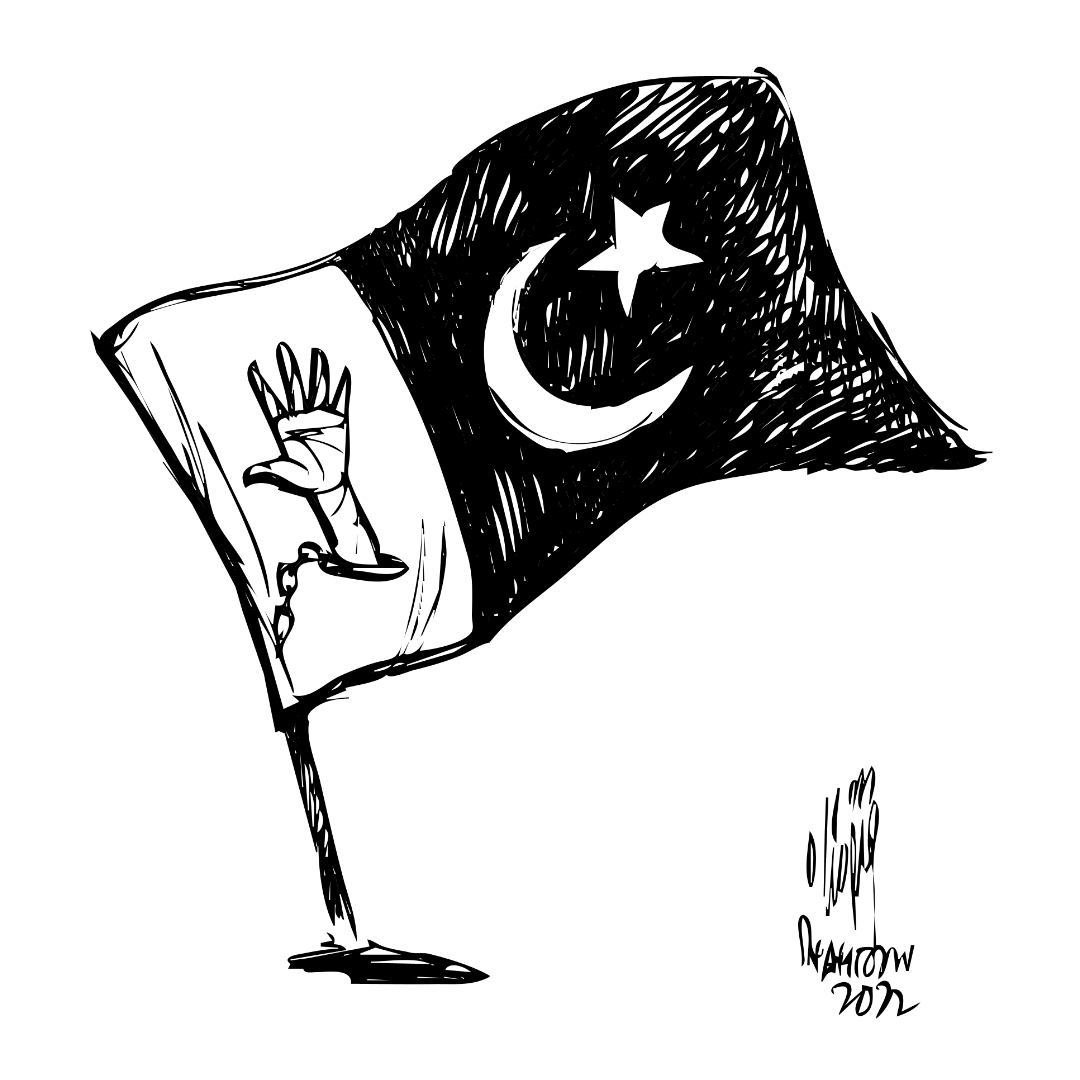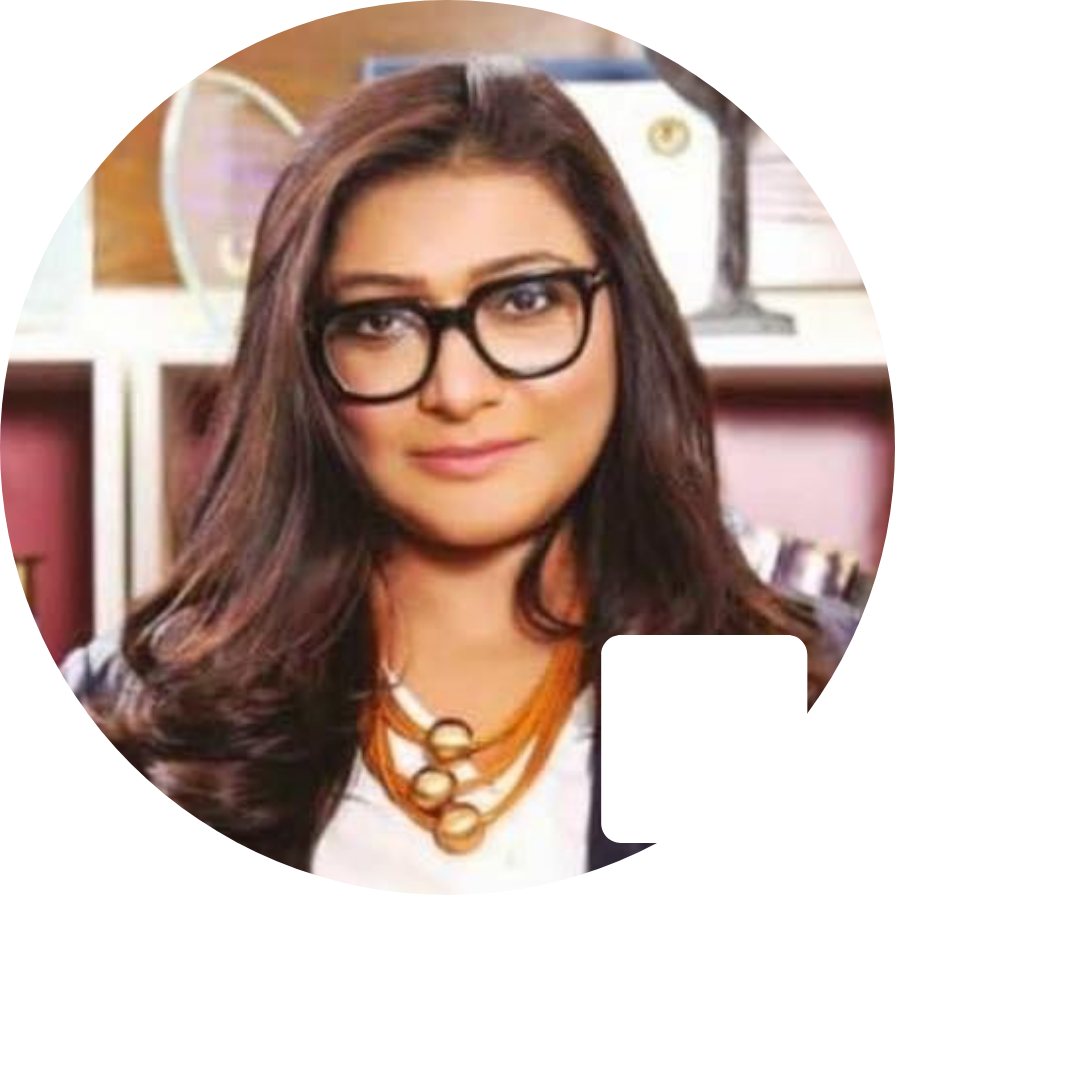PAKISTAN
Nighat Dad
“Keep learning new technological advancements and digital tools to counter propaganda in the digital and non-digital spaces.”


PAKISTAN
Nighat Dad
Nighat Dad is the founder and Executive Director of Digital Rights Foundation, a non-profit organization working on digital freedoms in Pakistan. She is also a member of the Facebook Oversight Board. Her work focuses on digital rights, especially data protection, free speech online, and online violence. She identifies herself as a feminist and works to empower women in the Global South through the use of digital technology. Nighat Dad is the recipient of the prestigious Human Rights Tulip Award. She is also a TED Fellow and a TIME's Next Generation Leader.
VITA
Nighat Dad is the founder and Executive Director of Digital Rights Foundation, a non-profit organization working on digital freedoms in Pakistan. She is also a member of the Facebook Oversight Board. Her work focuses on digital rights, especially data protection, free speech online, and online violence. She identifies herself as a feminist and works to empower women in the Global South through the use of digital technology. Nighat Dad is the recipient of the prestigious Human Rights Tulip Award. She is also a TED Fellow and a TIME's Next Generation Leader.
Could you please tell us how you became a human rights lawyer?
Becoming a human rights lawyer was more of an evolutionary process for me, because initially I did not think of becoming a lawyer. My conservative and rural family background posed manifold challenges to the pursuit of my higher education, especially in law. In the rural areas of Pakistan, enjoying the basic rights is an alien concept,especially for women. After completing my law degree, I wanted to practice family law, focusing on doemstic issues. However, exposure to vulnerable women and people seeking justice in cases, such as domestic violence, acidattacks, and honor killings led me to become a human rights lawyer. Indeed, my background had given me a fair understanding and a deep conviction of realizing the upheavals and obstacles for women at courts, not only as lawyers, but also as victims or petitioners who have to run from pillar to post for seeking justice. This became a turning point for me to further research and study various legal subject matters. This was also how I discovered that legal and policy issues related to cyber space, internet governance, and digital human and privacy rights are critical subjects that need to be worked on to uphold basic standards of human rights and civil liberties in the digital age.
How have you become interested in protecting human rights in the dgitial world?
In Pakistan between 2007 and 2008, there was very little understanding of the internet and new platforms of social media. People did not know anything about privacy rights, data protection, cyber harassment, etc. Hence, cyber laws, digital participation and internet rights policy frameworks became my major field and forte to help provide citizens legal aid, and understanding of the challenges of this new medium, as well as education and solutions for exercising their fundamental rights. My activities were institutionalized in 2015 when I founded a non-profit organization, Digital Rights Foundation (DRF). It primarily focuses on supporting human rights, democratic processes, and digital governance in Pakistan through research-based advocacy and legal support for victims. DRF’s Cyber Harassment Helpline is run by experts, espcially by dedicated women lawyers and activists, who ensure to provide legal and socio-psychological counseling to the victims of cyber harassment. Women, political dissidents, journlalists and marginalized sexual and religious minority groups frequently reach out to seek help and ways out of their sufferings from online violence and threats.
Women are particularly subject to digital violence. How has the #MeToo campaign effected Pakistan?
Since the “#MeToo” campaign naturally hit the society in Pakistan, many people especially women came out to share their horrific experiences of sexual harassment and abuse by powerful people. I have been pursuing cases related to #MeToo and have acted as legal counsel to provide support to the victims and survivors of sexual harassment, so they can stand up and reclaim their personal integrity against misogyny in digital and non-digital spaces. Although I had to pay the cost and face smear disinformation campaigns and numerous personal and professional threats discreditting and defaming me, but I am very proud of taking lead in this cause. It has changed the discourse of rights and voilence agains women in the country. In the end, I believe that truth wins and that’s how the fight continues.

What challenges women lawyers face in your country?
I feel the challenges multiply when a woman decides to pursue a career as a human rights lawyer. This means you should be ready to face destitution and isolation from your own legal fraternity, which is pretty much a predominated spectrum, not only in the courts but also in the bar and legal administration. The judiciary and judicial infrastructure are very much ramped with a strong notion of gender biases and discrimination towards women lawyers, and it certainly discourages young aspiring women to become practicing human rights lawyers. This needs to be changed through introducing structural reforms and advanced training programs for male judges in their respective institutions and academies.
Have you monitored any politically motivated human rights cases in relation to the online space?
The case of Pakistan’s first female social media star Qandeel Baloch, who rose to fame through social media and then, unfortunately, got killed by her own brother on account of honor killing, is very much politically motivated. I monitored this case closely and found that the case initiated a massive public debate on freedom of expression and set an unprecedented narrative in Pakistan. This case also highlighted how usage of online spaces can easily toxicate offline spaces and becomes lethal for women and conveniently leading to actual violence, hate speech, and social and political incitement. It also ignited debate on women’s right to individual choices, personal autonomy, and safety in online and offline spaces. Unfortunately, the murdered social media star could not attain justice, because her brother was aquitted by the court. However, her case mounted a pressure to amend the Honor Killing Crimes Laws of the country.

“Keep learning new technological advancements and digital tools to counter propaganda in the digital and non-digital spaces.”
What should be done to improve the human rights situation in Pakistan?
Human rights violation cases always stem from situations with people in power or powerful people abusing their authority and intruding to violate the basic safety net that ensures the protection of fundamental rights. In this context,fighting for human rights naturally comes with imminent challenges. Human rights lawyers and activists should always assess and reassess their risks, because not only the powerful actors and stakeholders intimidate them, but also new tools and techniques, such as disinformation and misinformation campaigning can instantly weaponize social and political discourse against them, and can potentially pose a harmful threat to them and their families. Therefore, lawyers and activists should know how to mitigate these risks and debunk disinformation propaganda maligning and discrediting their efforts. In addition, every child and citizen should be taught about their constitutional rights in schools and universities as part of the curriculum. This will eventually develop consciousness about importance of upholding constitutional rights and civil liberties of the citizen.
What is your message for lawyers with regard to fighting for the scrutiny of democratic values and implementation of human rights?
Keep learning new technological advancements and digital tools to counter propaganda in the digital and non digital spaces, because it's not only about your own security, but also the people you may defend as counsels. My advice for male aspiring lawyers is that, being a custodian of rule of law and constitutional rights, you need to create more receptive spaces for your fellow female colleagues to create a conducive and democratic environment in order to safeguard wider fundamental and civil liberties of the citizens.
Pakistan
